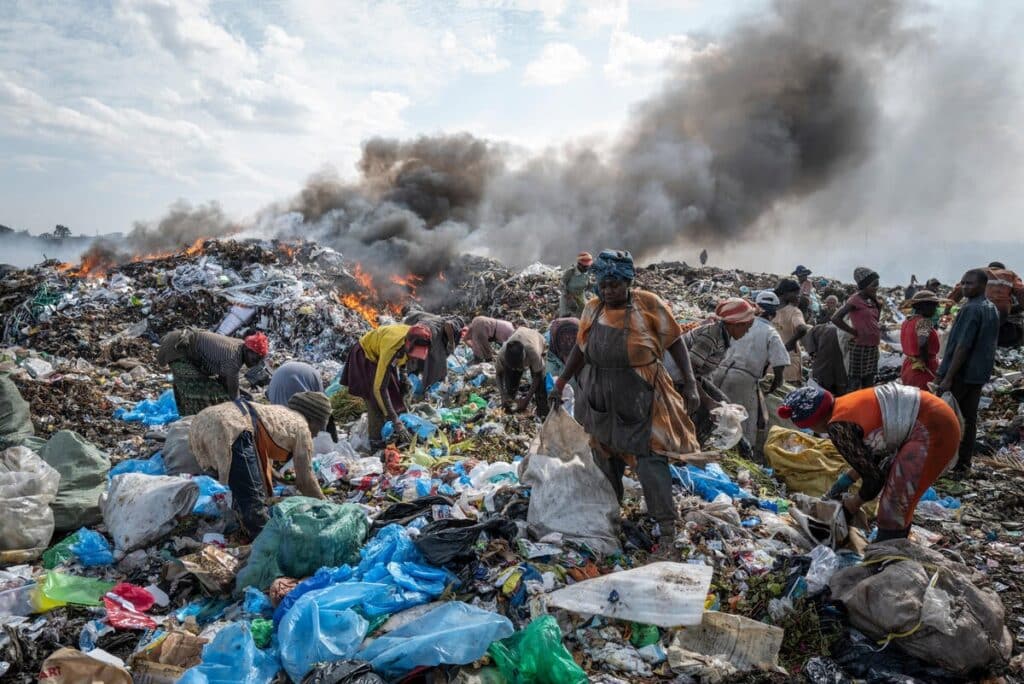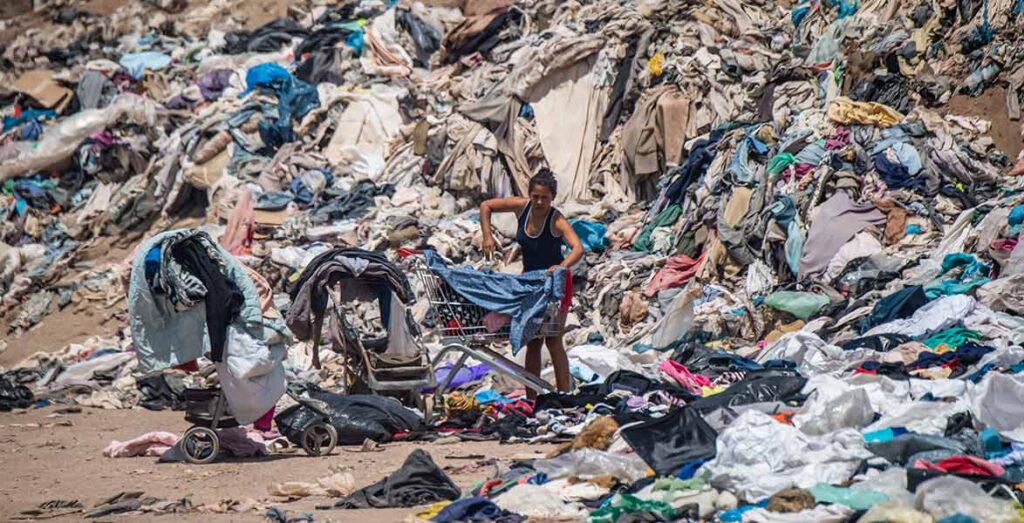Kenya is one of the leading importers of second-hand clothing from the Global North. However, the unregulated influx of unsellable, synthetic, and toxic textile waste poses significant environmental and public health risks across Africa, including Kenya.

A report released earlier this week on the global trade in second-hand clothing has revealed the alarming scale of environmental and public health damage caused by fast fashion.
The findings indicate that unsellable second-hand clothes, often made from synthetic materials, are severely impacting ecosystems and communities.
The report titled Fast Fashion, Slow Poison: The Toxic Textile Crisis in Ghana, launched in Accra, Ghana, highlights the devastating impact of discarded clothing from the Global North. Every week, approximately 15 million items of used clothing arrive at Kantamanto, Ghana’s largest second-hand clothing market, with many ending up in informal dumpsites or being burned in public washhouses. This has led to severe air, soil, and water contamination, endangering the health of local communities.
According to Greenpeace Africa and Greenpeace Germany, air samples from public washhouses in Accra’s Old Fadama settlement show dangerously high levels of toxic substances, including carcinogens such as benzene and polycyclic aromatic hydrocarbons (PAHs).
Infrared testing of discarded clothing revealed that nearly 90% are made from synthetic fibers like polyester, which contribute to the spread of microplastics in the environment. The report also highlights environmental degradation caused by the accumulation of textile waste, which is polluting rivers and creating ‘plastic beaches’ along the coast.
Hellen Dena of Greenpeace Africa stated, “The toxic waste dumped in Ghana is not just an environmental issue, but a stark example of environmental injustice recklessly carried out by the Global North. Fashion brands and governments must take immediate responsibility for the damage their waste is causing in countries like Ghana.”
Sam Quashie-Idun, the report’s author, emphasized the broader implications of the findings. “The evidence we’ve collected shows that the fast fashion industry is not just a fashion issue but a public health crisis. The clothes we tested are literally poisoning the people of Accra.”
“The situation reflects a neocolonial mindset where the Global North profits from overproduction and waste, while countries like Ghana pay the price. It’s time for a global treaty to address this imbalance and protect communities from the harm caused by fast fashion,” adds Quashie-Idun.

Kenya’s second-hand clothing market, commonly referred to as the Mitumba industry, mirrors Ghana’s Kantamanto Market. Both economies rely heavily on imported second-hand clothing. However, the quality of these imports is declining, with more unusable items contributing to pollution and waste in Kenya.
Like Ghana, Kenya struggles with inadequate waste management infrastructure, which is already burdened by plastic and textile waste. While Kenya is working towards banning single-use plastics, the increasing volume of second-hand textiles adds to the environmental challenges.
Environmentalists warn that Kenya’s informal settlements and waste disposal sites, such as the Dandora landfill, could face similar risks to those in Ghana. The burning of synthetic fabrics releases toxic chemicals that can contaminate air and water, endangering the health of nearby communities.
The report underscores the need for broader East African collaboration. Countries like Kenya, Rwanda, and Tanzania, all major recipients of second-hand clothes, are advised to adopt stronger regulatory frameworks to prevent hazardous waste from entering their economies.
Speaking in a side interview after the report launch, Hellen Dena, Greenpeace Africa’s Pan-African Plastics Lead, said, “Kenya is facing a slow-moving environmental crisis. Just like Ghana, the Mitumba industry brings more than clothes—it brings toxins and pollution. Kenya is drowning in poor-quality textiles that end up in landfills, rivers, and our communities.”
Kenya’s informal settlements and waste dumps, like Dandora, are at risk of becoming the next toxic hotspots due to unsellable clothing imports. The Kenyan government is being urged to take urgent action to regulate textile waste imports to protect the environment and public health.




